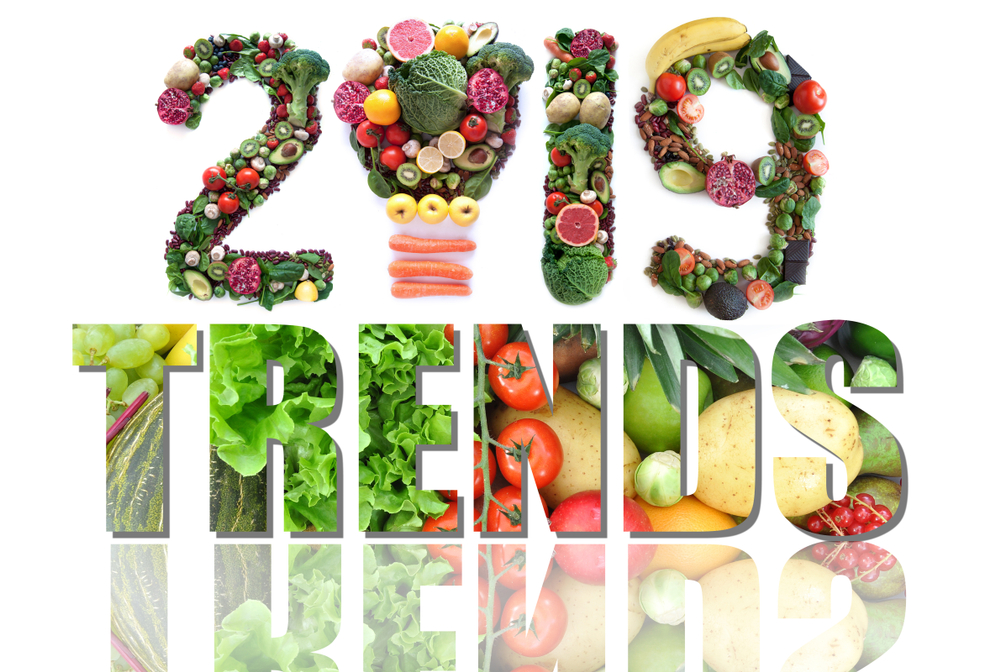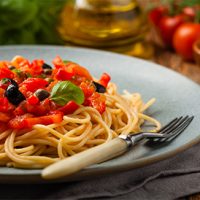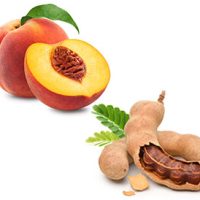The Natural & Organics Show (NOPEX) will be taking centre stage once more at…

TOP TRENDS FOR FOOD AND DRINK 2019
International experts from every sector of the food industry have been sharing their predictions of the exciting and innovative trends we can expect to see in 2019. Personalised nutrition, health and wellness and the wide spectrum of ‘I Feel Good’products are just some of the themes expected to dominate in the year ahead. The GNT Group, world leaders in food colouring, support this theory, commenting, ‘shades of sunshine are expected to be the colour of choice in 2019 driven by consumers seeking to enhance their mood through food’.
The correlation between health and dietary choices for consumers has never been more sharply in focus with as many as 50% of U.S. consumers citing health as their reasoning for purchasing bread, meat or dairy alternatives. The rising number of people identifying as vegan, vegetarian or flexitarian looks set to continue spurring growth in plant innovation, with many international brands now emphasising that their products are plant based, or incorporate fruits and vegetables among other ingredients. In the UK alone, statistics corroborate this trend, confirming 3.5 million vegans in 2018, compared to 540,000 in 2016.
Unsurprisingly, an opening has been spotted in the market for consumers to pursue a ‘gourmet’ vegetable diet and entrepreneurial French start-up company, Vegg’Up, have designed an app to help people reduce their meat consumption. Vegg’Up have formed a partnership with Biocoop in seventeen French cities to ‘co-construct’ a digital journey whereby users can scan the barcode of 50 flagship products for recipe recommendations and product information.
Personal nutrition has been described as the ‘next frontier’ in food and the accelerated pace of technological advances looks set to identify demographic differences that can influence consumer desire for individual products, as well as offer customised health benefits in functional food and beverages using branded ingredients. Apps which guide shoppers through their supermarket experience are likely to replace the familiar supermarket experience of searching through aisles to find a particular product.

Consumers’ appetite universally for trying new and adventurous flavours promises to be amply rewarded in 2019. Innova Market Insights maintain that consumers ‘love to discover new flavours’ and predict that an exotic range of flavour blends like turmeric, chai and cinnamon, spicy candies and savoury yoghurts will all be available to shoppers this year. Whole Foods Market also predict that amazing new ranges of sorbets and ice creams will include such unique flavours as tahini, avocado and mascarpone in the freezer sections of most leading supermarkets. Consumers following ketogenic and paleo diets will be able to indulge in nut-based treats known as ‘fat bombs’ because they are based on ‘healthy’ fats.
Transparency of labelling and ingredients has been highlighted by Chicago-based data firm, Label Insight, as the ‘backbone’ of most consumer purchases in 2019. A survey concluded that 86% of respondents felt a higher sense of trust for food manufacturers and retailers which provided ‘easy to understand’ information. ‘Many shoppers want to know exactly what a food item is made from, where an item is sourced and increasingly the business practices and ethical positions of the manufacturer before deciding to purchase’. The availability of in-depth product information through new methods such as ‘Smart Label’ should make this information even more accessible in future.
Food packaging trends going forward will be driven by the lobby of mounting consumer objection over the use of plastic packaging in the food industry and what has been described as the ‘coffin of marine life’. As a result, food and drink manufacturers look set to experiment with new packaging methods, utilising compostable plastic alternatives, derived from biodegradable plant materials such as seaweed, corn-starch, and NatureFlex. As many as 42% of UK consumers questioned by The Grocer Accelerator responded that food and drink manufacturers should prioritise making all their packaging recyclable.
Another pressing concern raised frequently by medical and food professionals is the amount of sugar in foods and how it can be reduced. Described as ‘the new cocaine’ in some quarters, manufacturers plan to produce a wider range of sugar free, or low sugar, products such as healthier fruit and granola bars and chilled coffee drinks without added sugar. The benefits of these products are gaining traction with health conscious consumers, especially in the expanding ‘food on the go’ market in the UK. Here and in other areas, the transition from sugar to initially artificial sweeteners, to now natural plant based sweeteners is accelerating at a swift pace. Healthy snacking options are also predicted to embrace probiotics within products to boost their wellness claims and increase shelf life.

Global food science analyst at Mintel, Emma Schofield, revealed new and telling research that consumers across the globe are most interested in how food and drink can improve their holistic health and how their purchases affect the environment.
If key product attributes of nutrition, clean label and taste have traditionally been priced at a premium in the past, then with competition, opportunities for healthy eating and product choices in 2019 should be widely accessible to every type of consumer and ‘not a privilege’.




